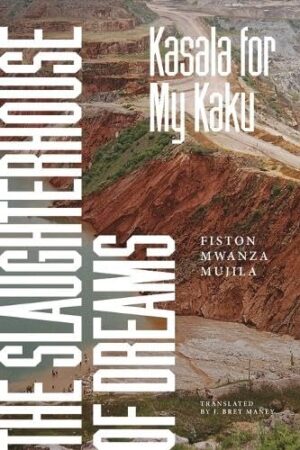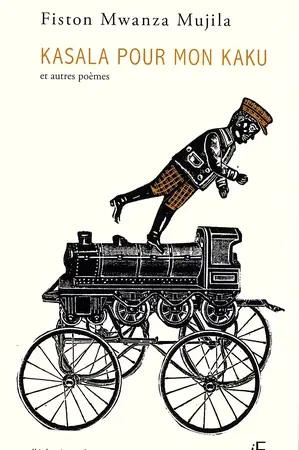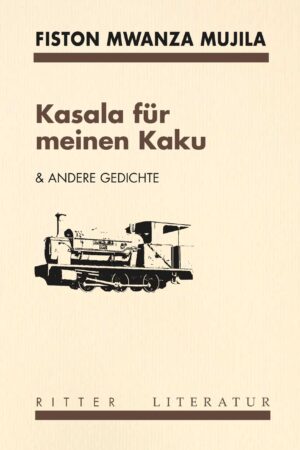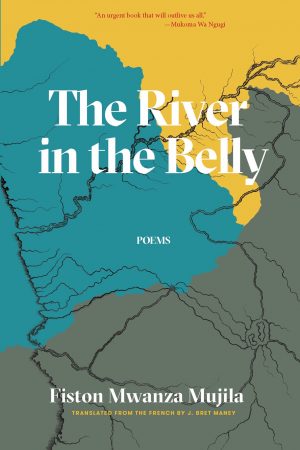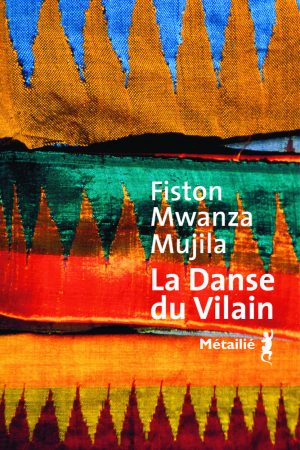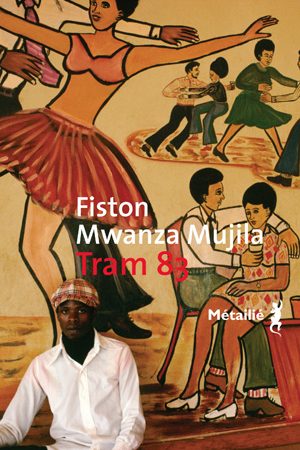The Slaughterhouse of Dreams
Kasala for My Kaku
The Slaughterhouse of Dreams is rooted in a traditional Congolese form of praise poem that ties together proverbs, myths, fables, and riddles into a recitation, accompanied by music. In Mwanza Mujila’s skilled hands, this oral tradition becomes a new multimedia form, kasala, set to the page while retaining the remarkable drama, emotion, and celebration of its performed root.
In The Slaughterhouse of Dreams, multiple lyrical traditions create a hybrid world of different global spaces and layers of time. Within this world, everything is possible, real and surreal at the same time. With the rhythmic, frenetic energy found in his poetry, prose, and performances, Fiston Mwanza Mujila reanimates and simultaneously deconstructs ideas of the (post)colonial environment.
Request more informationCovers
Original Language
FRENCH | Maison de la Poésie d'Amay
Translation Rights
ENGLISH (World) | Deep Vellum
GERMAN | Ritter Verlag
Reviews
“In a state of turmoil, water—mayi!—gushes from its source. It springs up in beautifully unpredictable spurts. Over which only the earth has final say. So it is with the poetry of Fiston Mwanza Mujila. So it is with the minerals scratched from the ground. Whether in Kolwezi, Kipushi or Tenke-Fungurume, in this land saturated with cobalt, uranium and other things no less terrible, and which we end up jettisoning abroad at the border post of Kasumbalesa, in the region where the author of these sublime verses was born.” In Koli Jean Bofane, author of Congo Inc.
“The Slaughterhouse of Dreams in translation opens up a traditional African poetic performance to the world with charm and acuity. But make no mistake: it’s a poetic river deep in history, longing, family, anger, love, and a quest for a nation within the self, layer by layer.” Kọ́lá Túbọ̀sún, author of Eṣù at the Library and co-editor of Best Literary Translations
“In a style reminiscent of Walt Whitman’s celebratory self-invocation, the kasàlà positions the individual poet as a conduit between self, family, nation, humanity, and the cosmos. The imagery of great rivers—the Zambezi, the Zaire, and the Danube—underscores a vision of life as interconnected, resilient, and generative: a force that resists annihilation, even under conditions of displacement and exile. Mujila’s work stands as both a continuation and renewal of the Congolese tradition, reasserting the place of poetry in bearing witness to suffering and envisioning human possibility.” Kasongo Mulenda Kapanga, author of The Writing of the Nation
"In these praise songs, Fiston Mwanza Mujila weaves traditional oral poetics with a contemporary lens to make a series of poems that celebrate, satirize, complicate, and recognize the fundamental and ancient cores of the human condition. The Slaughterhouse of Dreams sets a clear vision for the continuation of human struggle and reminds us that in praise we can find the fullness of all things." Matthew Shenoda, author of The Way of the Earth
“In The Slaughterhouse of Dreams, Fiston Mwanza Mujila reminds us how to feel the water of our bodies. These poems sing invocations to ancestors that “set the sun on fire.” They summon rivers, interrogate languages of the past, and ask us to “unspool dreams.” Here, there are bombs: “villages of mutilated buildings / villages nipped in the bud / starving villages / cholera-stricken villages.” Does Mujila speak of yesterday or of tomorrow? History breathes beneath fingernails. Try to look away and fail. The slaughterhouse holds rainbows dripping red. These kasàlàs are both protests and odes, inviting us to feel the full moon’s taking while dancing through love letters to those who came before. Float on waves of gorgeous hauntings.” Fatima-Ayan Malika Hirsi, author of DREAMS FOR EARTH
